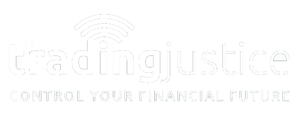As a new investor, you probably don’t know where to start. And that’s ok. Let’s talk about a few basic first steps that you can and should be taking.
One of the very first things you should do is to identify what types of accounts do you have. There are many ways you can invest, but one of the best ways is through an online brokerage account. With the evolution of the technology we use as individuals, we have better, faster and more access to markets than ever before as individual investors. You should consider opening up one or many of the different accounts available to you. Here are a few basic accounts to think about:
- 401k
- 403b
- 457 or equivalent
Individual Retirement Accounts (Traditional and Roth) – IRA’s
- Cash Accounts
- Margin Accounts
- Specialty Accounts
There are dozens of questions and account nuances that you will need to consider when you open the account, but let’s keep it at a broad discussions for now. You need to have some type of long-term investment account, some type of short term trading account and possibly some type of specialty account. If you don’t know how to invest, trade or anything about these accounts, start with a few questions:
- Did your employer or company provide a retirement account for you?
- Have you ever opened your own account?
- If yes, where are they?
- If no, do you need a retirement account?
- If no, do you want to trade?
 • If your employer provides some type of retirement account, it is probably a 401k account or a similar equivalent. These tend to be built with mutual funds, bonds, cash and traditional investment vehicles in mind. Active investors, with education, rarely would use these products or accounts. If you have a 401k, and want to keep it, you should make sure you know what you are invested in. Conduct a fact-finding mission, look at your statements, locate the investment funds you have, find their ticker symbols and make sure you research the composition of your funds. If you want to be an investor, you need to become informed. Beginning the process of learning about your investments can be intimidating, but it is very important if you’re going to avoid costly mistakes, maximize your potential returns based on market conditions and learn to hedge off risk.
• If your employer provides some type of retirement account, it is probably a 401k account or a similar equivalent. These tend to be built with mutual funds, bonds, cash and traditional investment vehicles in mind. Active investors, with education, rarely would use these products or accounts. If you have a 401k, and want to keep it, you should make sure you know what you are invested in. Conduct a fact-finding mission, look at your statements, locate the investment funds you have, find their ticker symbols and make sure you research the composition of your funds. If you want to be an investor, you need to become informed. Beginning the process of learning about your investments can be intimidating, but it is very important if you’re going to avoid costly mistakes, maximize your potential returns based on market conditions and learn to hedge off risk.
If you’re in a 401k, you should find out a few things about how it operates and what exposure you have. Outside of the investments, you should consider any matching programs that you can take advantage of. Any money deposited beyond what your company matches should be questioned. What is your intended goal with that capital? Why are you not moving it to another location? Aside from that, learn the rules for your 401k. You should consult an accountant, or your human resources department, to learn about borrowing against your 401k, the tax rules for it, and when you can and should use the money. Another important thing to ask is, how do you convert it to another type of account, if you ever choose to based on your desire to use the money to invest or trade with on your own.
In traditional 401k’s that employees get from their employers, the primary investment is mutual funds. Because of this, you should understand the nature of how mutual funds are built and how they work. Mutual funds have fees. Those fees can add up over time. It is probably a lot more than you think. Mutual funds also have limitations. For one, they don’t have options contracts – which are derivatives that give you the potential to use advanced strategies. Options contracts are used by educated investors to control risk and generate cash flow. Most investors are told to leave their money alone, so mutual funds naturally wouldn’t have options. Because of this, you can’t really hedge or protect them directly. More on that later. They also don’t trade during the trading day. If you’re a market watcher, and you pay attention to the conditions of the Capital Markets on a daily basis, then you might find yourself in a trading day where you want to get in, or out, of your mutual fund. Your order won’t be processed until the market bell at the end of the trading day. Essentially, these characteristics are intentional. The system is set up so that if you’re a mutual fund investor, you aren’t expected to pay attention, use advanced strategies or exit your investments. If you’re comfortable with that, you’re probably reading the wrong author. That’s not acceptable in my mind.
• If you don’t have a 401k, or work for a company, you might have started an IRA. There are basically two types of IRA’s, the traditional IRA and the Roth IRA. Essentially, either one works, and there are strategies and advantages to using one or the other depending on your age, your investment style and goals and some other factors. But, if you believe you will grow your money – and you should – then the Roth IRA has one distinct advantage. With a Roth IRA you pay the taxes when you deposit the money – so if and when you grow your capital, you can take it out tax-free. IRA’s can be set up with most brokerage houses in less than an hour of online paperwork. There are hundreds of places you can establish your IRA. If you want to research some of the online brokers, look up the Barron’s Online Broker Review, and you will find a thorough review of hundreds of online brokers. It’s not that important that you pick the perfect broker, it’s more important that you just take your first steps. You can always move brokers, and you can always negotiate fees, request higher trading access and all of the other hurdles that new traders get hung up on can be handled over time. Just begin somewhere.
Once you have a retirement account started, you also will need to establish a trading account. They are separate. Retirement accounts are to be built, with the intention of leaving the money alone, until its time to retire. Trading accounts are to be run like a business. Your trading account can come in one of many different forms, but the most common type of trading account is a margin account. Margin gives you access to buy stocks for half of the required capital. It’s something you want. You might be intimidated by using the broker’s money, but you want to have access to margin. Margin also gives you the ability to use advanced strategies like credit spreads with options contracts. It’s something you should have – even if you don’t use it – and if you’re new, you’re not ready to use it – but you still need it. So start with a margin account. And then deposit nothing into it. Because establishing the account, gives you access to the tools – but it doesn’t make you a trader. All of your energy at the beginning should go into designing your trading business and becoming educated. Until you have a business design, trading plan, backtested your plan and perfected the tools, you should start with paper money. But to do that, you still need the account. Which is why you should set it up. The same Barrons Online Broker Review article will rank the different brokers for trading accounts and their perceived advantages and disadvantages.
Specialty accounts fall into the category of Foreign Exchange, Futures, and some other niche accounts. Until you get a retirement account and margin trading account, I would suggest holding off on these. Some trading businesses are built on using the FOREX or Futures markets and thus, there are brokers that specialize in those products. If your trading journey takes you down those paths, you will need to research the different brokers and their advantages using those products.

